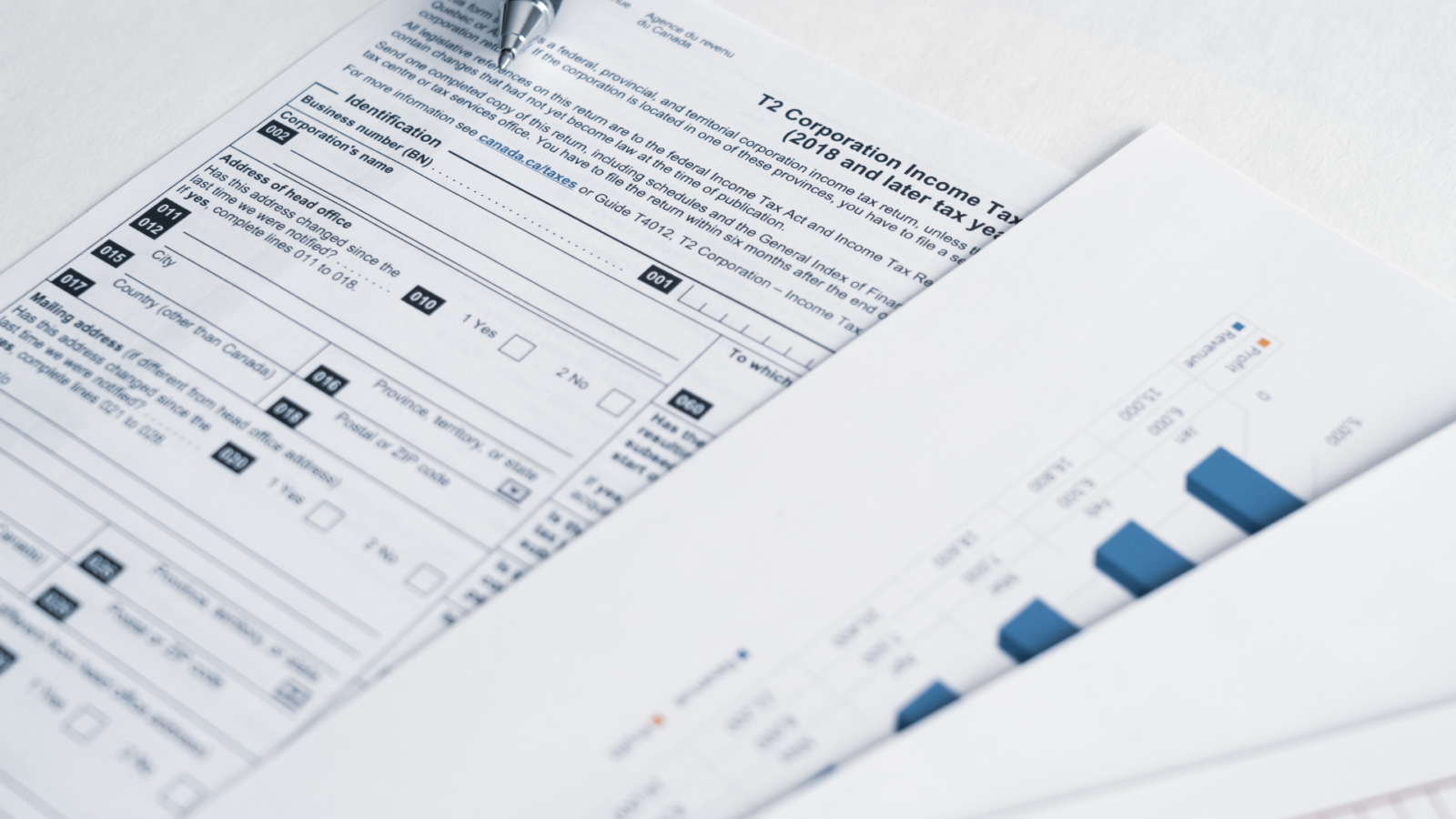Tax Planning & Preparation
5 Ways Small Business Owners Can Save Tax
July 7, 2023

Being a business owner has its perks. You get to follow and live your passion and grow money in the business. One of the most significant advantages of owning a business is you get to use many ways to save taxes and grow your wealth. You save tax on your purchases, investments, and expenses if you work tactfully and use the various tax-efficient ways of executing a transaction. And if you incorporate your business, you can unlock several tax benefits the Canada Revenue Agency (CRA) offers private corporations.
Five Ways Small Business Owners Can Save on Tax
This article will discuss five ways a business transaction can save small business owners from significant tax bills.
Invest By Keeping Money in the Corporation
If you have incorporated your company, it is now separate from you. It pays a lower corporate tax rate. Keeping the money in the business allows you to pay lower corporate taxes on your profits. So if you plan to invest in real estate, stocks, or corporate-class mutual funds, consider investing from your corporate dollars. Don’t withdraw the money to invest; that money adds to your income and attracts a personal tax rate of 15-33%.
For instance, you earn $10,000 in your corporation and pay 11% corporate tax. You have $8,900 left after tax for investment. Your portfolio achieves a break even after a 12% return. But, if you withdraw this amount, you pay a higher personal tax if you fall under the 29% tax rate, leaving you with $7,100 to invest. Your portfolio must return 41% to achieve a breakeven of $10,000.
When you sell your investments in the corporation for a profit, you incur capital gain tax (CGT) on 50% of the gain. You pay tax on the 50% gain. As for the other 50%, it is exempt from CGT. You can put that exempt gain in Capital Dividend Account and withdraw it tax-free.
The accounting of this transaction is a little complicated. Discuss this methodology with a professional accountant and save big on investments.
Defer Paying Tax at a Later Date
Another benefit of incorporating your company is it allows you to defer taxes as long as the profit stays inside the company. But incorporation only makes economic sense if your business is earning sizeable profits. You can delay paying tax on income by delaying your withdrawal from the business to a year when your overall income is less. For instance, you earn $150,000 this year and have another $50,000 in the company. Instead of withdrawing them this year, you can withdraw them next year or a few years later when your income is below $100,000 and reduce your overall tax bill.
| Federal Tax Rate | 2023 |
| 15% | $53,359 |
| 20.50% | over $53,359 up to $106,717 |
| 26% | over $106,717 up to $165,430 |
| 29% | over $165,430 up to $235,675 |
| 33% | over $235,675 |
You can also make your tax deferral permanent if you plan to sell your business later. The CRA allows the lifetime capital gain tax exemption (LCGTE) to qualified small businesses. The 2023 exemption limit is $971,190, which means you need not pay any tax on capital gain from the sale of business or business assets up to the exemption limit. So if you qualify for LCGTE and sell your business this year for a gain of $800,000, you pay no tax.
A professional tax consultant can help you plan your tax payments using deferral techniques.
Use Dividends and Salary to Save Tax
While keeping money in the business has tax benefits, there are tax-efficient ways to withdraw money from the company. You can hire your spouse and children as employees and pay them a salary according to industry standards. That way, you can show your salary as an expense and reduce your business income. You can withdraw more without having to pay higher income tax.
For instance, you want to withdraw $200,000 every month. If you withdraw under your name alone, you will fall under the 29% tax bucket. But if you divide this amount among your wife and child, you can pay less than 21% tax.
But with salary comes contribution to Canada Pension Plan (CPP), wherein you have no control over where to invest. The government invests your CPP money and determines the payout. For some use cases like investing for retirement, you can consider paying yourself dividends to get control of your retirement planning.
Declare Year-End Bonuses to Reduce Business Income
While we are on the topic of salary, you can also declare bonuses to employees near the year-end and pay them next year. The CRA allows businesses to deduct the declared bonus from their income in the current year. Employees pay tax on the bonus next year when they receive it. However, the time difference between the declaration and actual payment should not exceed six months.
Claim Deductions on Business Expenses
Apart from saving tax on business withdrawals, you can also save tax on business income. The CRA allows small business owners to deduct several business expenses as long as they are reasonable and backed with necessary documentary proof. For instance, if you have converted 25% of your home into an office, you can claim 25% of your household expenses like rent or mortgage interest, property tax, utility bills, and maintenance as business expenses.
If you employ apprentices, you can claim 10% of their salary as the apprentice job creation tax credit of up to $2,000 per year. The CRA offers other refundable and non-refundable tax credits small business owners can claim depending on the type of business. For instance, there are Scientific Research and Experimental Development tax incentives for the amount you invest in researching and developing a new product. There is an investment tax credit for opening a licensed childcare facility for your employees’ children.
A professional accountant specializing in your sector can guide you on the available tax credits and the documents needed to claim them.
Contact DDL & Co. in Niagara Region to Help You with Tax Planning
A skilled accountant can help you devise a tax strategy efficient for your business. At DDL & Co., our accountants and tax consultants can provide accounting, tax filing, and tax planning consultation services. To learn more about how DDL & Co. can provide you with the best accounting and tax planning expertise, contact us online or by telephone at 905-680-8669.



